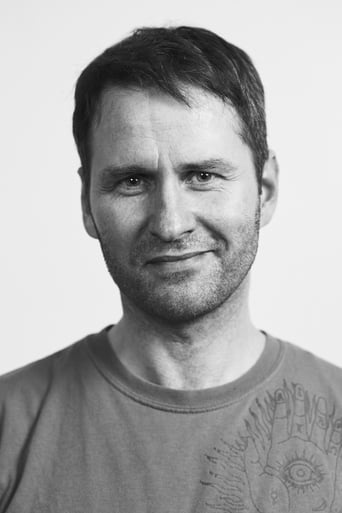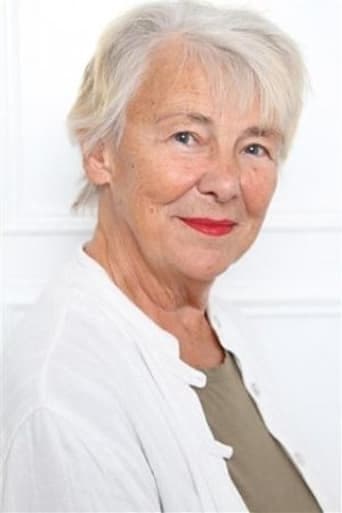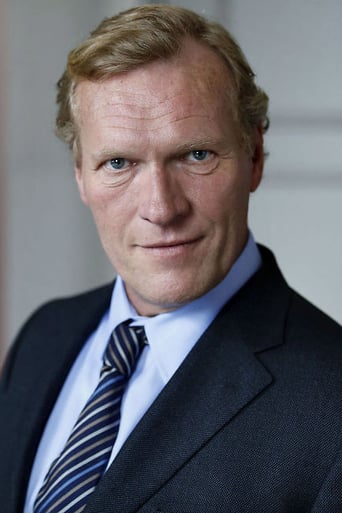dogbertios
This movie was totally amazing. i loved all of the characters, and the scenery was breathtaking. Also, the scene in the hotspring was so beautiful. Great music all throughout the movie... i wanna go see it again. enough said.
plaidpotato
There were some funny parts, too. And some hackneyed parts. And some awkwardly written parts. And some clumsily edited parts. A few honest, good parts. But lots of parts that tried way, way too hard to push the audience's buttons. There were some astonishing, forehead-slapping, gaps in logic. But the acting was decent--within the confines of the script and the direction--and the cinematography was professional-looking. There were lots of good pictures of Iceland, and that's why I went to see this film. I can only give this film a 4/10, but it was an engaging train-wreckish sort of 4/10. I suppose there was enough I liked about the film that I'd be willing to give the director another try some day.
braugen
Second-time Icelandic director Baltasar Kormákur presents "The Sea", a film that, if you have a positive view of people, will make you think a second time about human qualities.As this is only the fourth film I see from Iceland, my view of Icelandic cinema has not changed- it's very good, actually. Kormákur continues where he left off with "101 Reykjavik", and plunges into Ólafur Haukur Símonarsons play with fierce misanthropy. There are two characters with a few positive traits (Morten and the French woman, forgot her name), but these two are outsiders and only supporting characters. I hated each and every member of this family, but that didn't stop me from enjoying the film, which is a peek into the most base instincts of human behaviour: adultery, greed, racism, incest, apathy and hate. "The Sea" is a bit over the top at times, but it is never ruined by digressions or by lack of reality with which it treats its characters.The Icelandic people seem to be treated by their directors (again I'm generalizing a bit since Fridrik Thor Fridriksson and Kormákur are the only directors I know) as a very tough, ruggish people who don't let mistreatment ruin their joy of life. Early in the film, the youngest son of Thordur (the patriarch and owner of the fishing industry), tells his French girlfriend that when his sister was raped as a young girl, their father reacted more aggressively towards her because she became upset, than with the rapist who ruined his only (or is it?..) daughter's life. "An idiot raped by an idiot", their father claimed. This statement is very characteristic of the film. The plot is constructed around Thordur, now an ageing man who wants to gather all his children and their families to tell them something important: They are greedy and they'll get nothing from him. His children with their partners, his wife and his mother are then gathered at his house, and we get to know them bit by bit, until we learn how they became this family and then your sympathy will just decline. The opening hour is extremely funny, which is one of this film's best assets. But it's funny in a cruel way, and the cruelty is just escalating throughout the motion picture, until there is nothing but cruelty left at the end. Thordur's mother, Kata, is portrayed as very funny, but totally ignorant of the world and she is not nice to the people around her. Thordur's three legitimate children were born by a dying mother, and throughout her illness Thordur kept his wife's sister (Kristin) as his mistress, in their house. The children's mother's sister (Kristin) is presently Thordur's wife, and she also has a grown up daughter (Maria), who is in love with Thordur's youngest son (I've forgot a lot of names, even if I saw the film yesterday! sorry), even though they grew up as brother and sister. This theme of incest is perhaps the most sickening theme in the film, but it's nice compared with the greed of Thordur's children and Thordur's inhuman, megalomaniac behaviour towards his kids.
This is a film which is at times hard to watch because of the uncomfortable human relationships. But the actors, the direction and the cinematography is impeccable; brilliant. Jean-Louis Vialard has captured Iceland's wild but beautiful nature magnificently: especially when Thordur's daughter Ragnheidur, her Norwegian husband (Morten) and her son drive through the mountains to get home to her father- the photography struck me as superb. The sense of a decaying village is perfectly portrayed by Kormákur. The themes of this film is reminiscient of a master like Rainer Werner Fassbinder, and it struck me as just as misanthropic as Ulrich Seidls brilliant "Dog Days".
terrymcginnis21
When I saw this film for the first and last time, I found it to be one of the worst films that I've seen from Scandinavia. Of course I am not saying that this is THE WORST movie to be exported from our Nordic cousins, but because I found it to be so pretentious. Every single one of the cast members were trying to pronounce Icelandic as clearly as they could and they felt that every single facial expression had to be expressed to the fullest. Hence, leaving the performance to be flat and flamboyant.Not to mention that director Baltasar Kormákur is a total egotist and apparently he was more conscious of letting everyone know that he directed this instead of actually directing this film (his credit appears 3 times as the director).However this film does project a dark image over rural-Iceland and it examines the Icelandic fishing industry as the same source of corruption as the family as both suffered and witnessed. This MELODRAMA tries to fit into the footsteps of the Danish film "Festen" but fails because you feel like you are watching a knock off of the Danish masterpiece.
Kormákur generalizes the Icelandic family and portrays it as grimm trolls lurking from the mountains in the dark.May I suggest to Icelandic filmmakers and actors to act like you are not acting and that directors should at least make an effort to direct instead of telling everyone that he is directing it.The only one who deserves any praise in this movie is Film editor Valdís Óskarsdóttir, who coincidently edited Festem and must of felt just like home during the making of this excuse of a movie.



